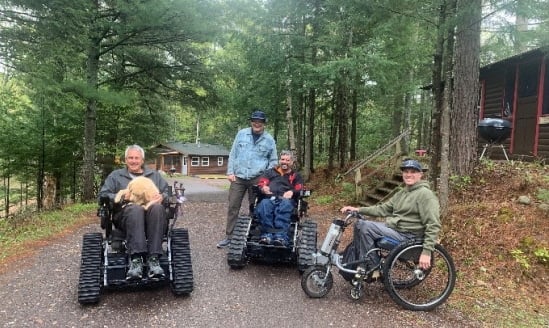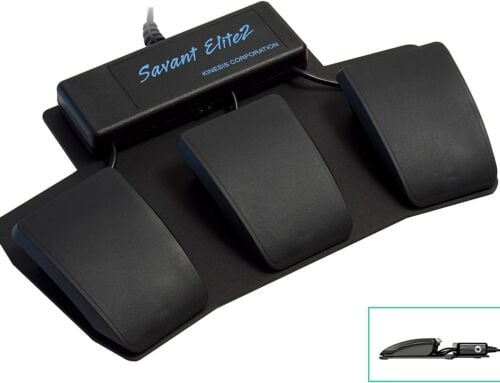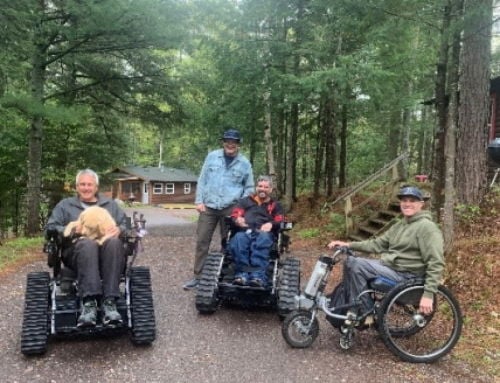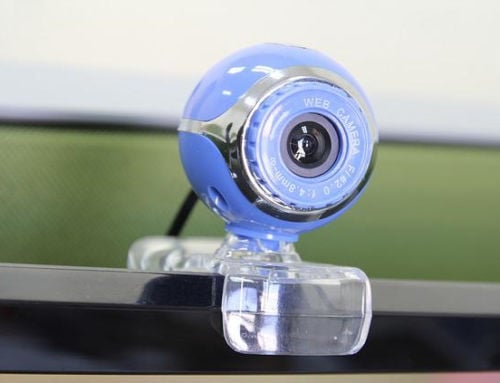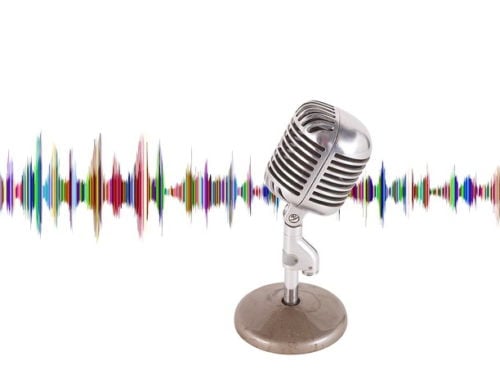Music, Radios, and AI for Living With Alzheimer’s
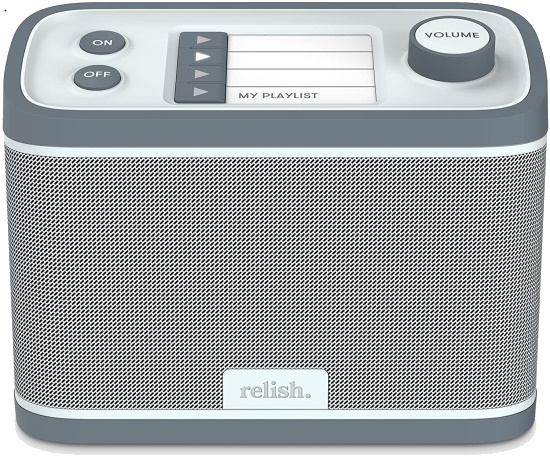
Could music make a difference for someone you love? #AlzheimersBrainAwarenessMonth

Alzheimer’s disease, according to the Mayo Clinic, often does not affect the areas of the brain that hold music. This phenomenon opens a way for individuals living with Alzheimer’s to connect with the past, enjoy the present, and even continue their musicianship for years after diagnosis. In August of 2021, Tony Bennet and Lady Gaga performed together on the stage of Radio City Music Hall in New York City over two evenings to sold-out crowds. Bennet has had an Alzheimer’s diagnosis since 2016.
Music can help relieve stress and reduce anxiety, depression, and agitation. It can also be a boon for caregivers by facilitating connection, joy, and communication. For this reason, AT3 Center News and Tips was interested to learn of a new service in the iTunes Apps store that uses artificial intelligence (AI) to select music for adults with Alzheimer’s disease. Also discussed here is a radio uniquely designed for persons with dementia and an album of original 40s-style music created by two older adults for older adult listeners (dementia not required!)
Vera Music
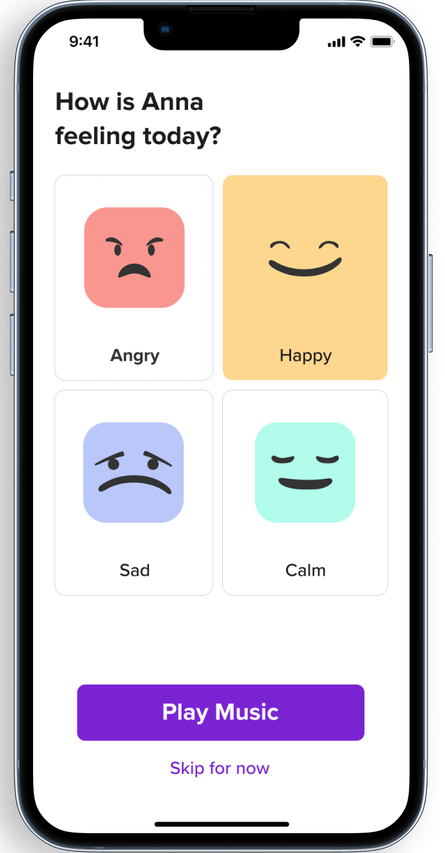
Vera uses AI to identify songs and create unique playlists for relaxing, reminiscing, and getting active. (Yes, it’s a lot like having a specialized Spotify.)
Using the Vera app, caregivers create a profile for their listener (or multiple profiles for different listeners, depending on what level of Vera service they subscribe to). The profile uses information such as age, where the listener lived for different periods of their life, and known music preferences. Vera uses this information to suggest songs and the caregiver notes reactions with “Like” or “Remove” to help the app target preferences.
Vera touts its algorithm for identifying music with the most nostalgic appeal, often songs the listener had long forgotten and is delighted to rediscover. The app is designed to be used as a behavior management aid, and the video on Vera’s website provides testimony from a long-term care residence in Australia of its powerful positive results for both caregivers and residents. The playlists are scheduled for specific activities or moments throughout the day. (The Vera video is very compelling!)
Vera’s most impressive feature may be the size and global nature of its music library. It boasts over 250,000 non-English songs in 100 languages and targets song choices based on developmentally significant stages of a person’s life. Did the listener grow up in India and then move to Wales at midlife? Vera has them covered. Learn how to make the most out of Vera.
(The concept is reminiscent of the stationary bicycle exhibited at ATIA several years ago that made use of Google Earth. The user peddles toward a screen that gives the effect of traveling in a location of their choosing, such as a street from their hometown… anywhere on Earth.)
Vera is available for iPhone and iPad in the Apps store for $9.99/mo. for 12 months. Vera Pro is geared to professional caregivers with more than one client and runs $20/mo. (There is also a Vera Enterprise for long-term care facilities.)
Learn more about Vera from the Assistive Technology Blog
Relish Radio

The Relish Radio is designed to be operated by listeners with dementia and does not connect to the internet or subscription music services.
The radio has a hidden digital tuner (under the top panel) where the caregiver selects and programs radio station pre-sets for easy selection from the top of the console. Four tactile arrow buttons can be labeled with words meaningful to the user (Jazz? Gospel? Pop?) The fourth arrow can play MP3s from a thumb drive (installed inside the console). This way, users can have access to their own playlist.
The radio also has an old-fashioned knob for volume, and the lowest position does not turn it off entirely so that users know the unit is still on. Clear tactile on and off buttons are also provided. Relish Radio sells for $149.99 on Amazon (as of this writing). Also, check out this One Button Radio on Amazon for $129.00
Senior Songbook
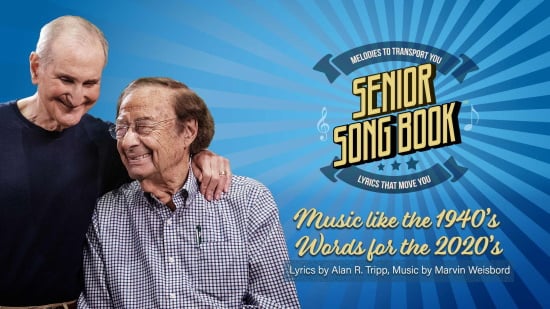
Senior Songbook: Melodies That Transport You–Lyrics That Move You are tracks that sound like they’re from the 40s but were written in 2020. Alan Tripp, at age 102, and Marvin Weisbord, at age 89, self-published an album geared for older adults, filling a gap they saw in the music universe. Tripp and Weisbord met in their assisted living residence in Bryn Mawr, PA. Tripp wrote the lyrics, and Weisbord, a jazz pianist, the music. Together they had a late-in-life 15 minutes of stardom (check out their appearance on the Kelly Clarkson Show). The songs reflect on growing older.
I know I’m mad about you,
Chorus to “I Just Can’t Remember Your Name.”
And all but lost without you,
And great affection for you I proclaim.
I’m ready now to kiss you,
But, baby, there’s an issue –
I just can’t remember your name.
Tripp was the driving force (and passed away during the pandemic at age 104). Weisbord is still playing his piano for their community. Check out the Senior Songbook’s ten tracks for $9.99. (Yes, they’re on Spotify, too.)
Monthly Blog Digest
Search the blog
State AT Program Blogs
California
Florida
Indiana
Kentucky
Louisiana
Maryland
Massachusetts
Michigan
Montana
North Carolina
North Dakota
Utah
State AT Program Blogs
The AT3 Center, the Association of AT Act Programs (ATAP), and the Administration on Community Living (ACL) make no endorsement, representation, or warranty expressed or implied for any product, device, or information set forth in this blog. The AT3 Center, ATAP, and ACL have not examined, reviewed, or tested any product or device hereto referred.


